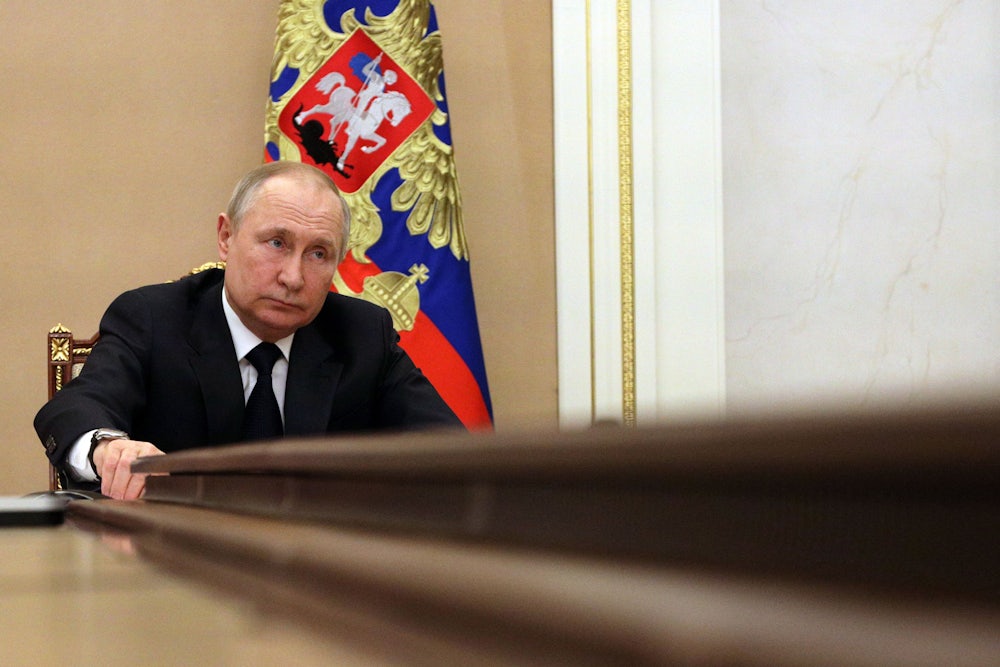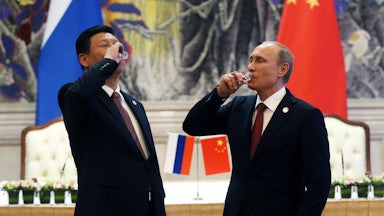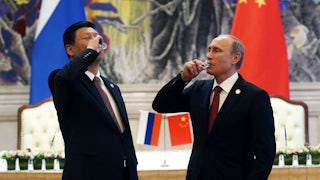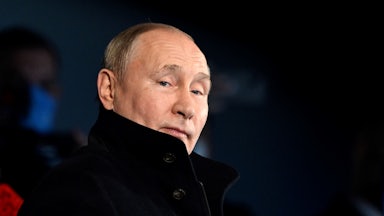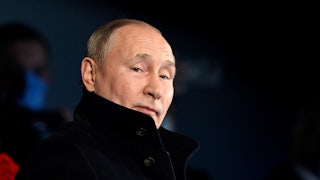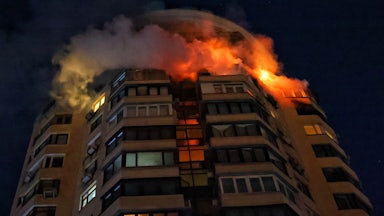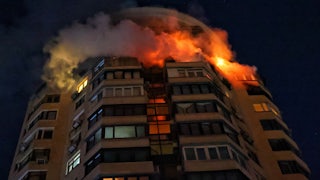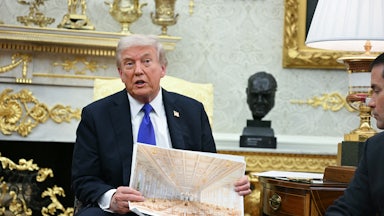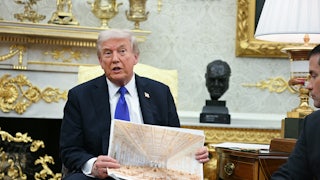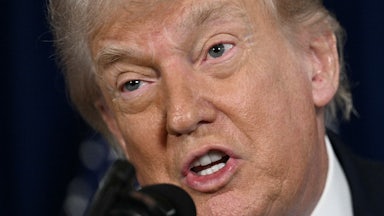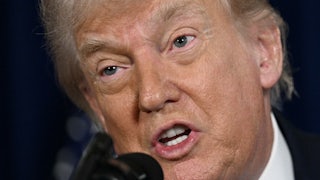If the war has indeed reached a stalemate, as a number of outlets were reporting Sunday, then it’s time to worry in earnest about what Vladimir Putin will do next—by which I mean, just to cut to the chase, whether he’ll use chemical or even nuclear weapons.
Former National Security Council staffer Fiona Hill, who knows as much about Putin as anyone, says unequivocally: Of course he would. In an interview she gave to Politico shortly after the war started, she reminded us that Putin already has used chemical weapons. She explained:
The thing about Putin is, if he has an instrument, he wants to use it. Why have it if you can’t? He’s already used a nuclear weapon in some respects. Russian operatives poisoned Alexander Litvinenko with radioactive polonium and turned him into a human dirty bomb and polonium was spread all around London at every spot that poor man visited. He died a horrible death as a result.
The Russians have already used a weapons-grade nerve agent, Novichok. They’ve used it possibly several times, but for certain twice. Once in Salisbury, England, where it was rubbed all over the doorknob of Sergei Skripal and his daughter Yulia, who actually didn’t die; but the nerve agent contaminated the city of Salisbury, and anybody else who came into contact with it got sickened. Novichok killed a British citizen, Dawn Sturgess, because the assassins stored it in a perfume bottle which was discarded into a charity donation box where it was found by Sturgess and her partner. There was enough nerve agent in that bottle to kill several thousand people. The second time was in Alexander Navalny’s underpants.
So if anybody thinks that Putin wouldn’t use something that he’s got that is unusual and cruel, think again. Every time you think, “No, he wouldn’t, would he?” Well, yes, he would. And he wants us to know that, of course.
It’s partly just dumb luck that he didn’t kill thousands of people in the city that is, incidentally, at the heart of the U.K.’s military establishment—you have perhaps heard of the Salisbury Plain, where the Ministry of Defence conducts exercises. I’ll trust Hill on this.
Here’s a second reason to worry. The Kremlin has been making noise about the possibility of Ukraine using chemical weapons against Russian soldiers. I wrote about this last week, and the way Tucker Carlson and others were just shocked, shocked to learn that bio labs exist in Ukraine—labs that are the residue of Cold War politics, have never been kept secret, and exist for the purpose of containing the spread of dangerous weapons and pathogens.
Why is that reason to worry? Because this may be Putin’s version of working the refs. That is, having laid this propaganda groundwork, he could turn around and use chemical weapons and blame it on Ukraine. “See? What did I tell you? We have established that they have these weapons. And, of course, they are a bunch of neo-Nazis, so why would this surprise anyone?”
As national security adviser Jake Sullivan recently said: “It’s a tell that they themselves may be preparing to do so, and then trying to pin the blame on someone else.” And this recent comment from President Biden was other than reassuring: “I’m not going to speak about the intelligence, but Russia will pay a severe price if they use chemicals.” Bear in mind that U.S. intelligence, famous for its past blunders and paranoid misreadings, has largely gotten things right with respect to this war.
This kind of false-flag operation is what most concerns Gregory Koblentz, director of the Biodefense Graduate Program at George Mason University. He recently told CNN that he doesn’t necessarily think Putin would use chemical weapons (and by the way, Russia is a signatory to all the treaties that ban such weapons, but most experts still believe that it maintains some kind of supply of them).
Koblentz thinks a chemical attack is unlikely for three reasons: It’s a massive escalation; the international blowback would be ferocious; the military value of such an attack would be questionable. He does, however, fear the scenario laid out above
where they stage an attack that is either completely fake, or they use a limited amount of a chemical agent in territory they control and then blame it on Ukraine or the United States as a way of trying to justify the invasion to date, and maybe they justify some kind of escalation.
At some point, Russia is kind of running out of their conventional military power. They might have to call in the reserves, they might have to do other things that would be very unpopular domestically, so they might need to gin up more of a justification for what they’ve done.
Koblentz makes a key point about domestic unpopularity. How are Russians experiencing this war? We don’t really know. We do know that earlier this month, Putin signed a law that makes spreading “false information” about the war illegal and punishable by up to 15 years in prison.
TV Rain, one of the country’s leading independent news outlets, suspended operation in early March. I was fortunate enough to visit the offices of TV Rain in 2016, where I was interviewed by one of their anchors. At the time, she described to me a situation that was difficult but manageable. Things are obviously quite different now.
Still—reality must be breaking through. It’s a basic truth of the information age that you can’t really block information. People will find out. Whether they have the capacity to act is another matter, but they will know the truth, or enough of it. And that’s scary, too, because if Putin feels cornered, who knows what he’ll do to win the war and maintain his hold on power. Recent signs, like his unhinged and, essentially, fascist speeches from last week, are other than encouraging.
We thought we had outlived the era of nation-state wars, at least in Europe. It’s a viciously bloody history that we thought we had left behind. But one man has plunged the world back into that darkness. We hope he’s rational enough not to use nuclear weapons and start World War III. But a false-flag chemical “accident”—using the kinds of weapons that even Adolf Hitler considered beyond the pale—is entirely possible. What would the world do then?
